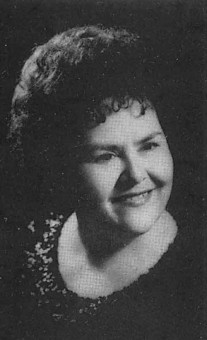Who is Latin America’s finest scribe?
María del Carmen Who?
Good question. But the first question—the identity of Latin America’s finest—was quickly settled. My wife dropped the García Márquez and Allende books before finishing the first chapter. But her eyes became riveted to 49 Cents of Happiness, by “Who?” She almost finished it in a single sitting. When I read it myself, I frankly liked it better than 100 Years of Solitude.
So does García Márquez live in Fool’s Paradise? There are, it seems, a few folks who prefer the tiny proprietress of a now-shuttered bridle shop in Pasaje Rubio. In fairness to García Márquez, my señora is, like her new favorite author, Guatemalan. So patriotic bias may figure, to say nothing of the familiarity—shared by author and reader—with Guatemala City’s places and habits. But who, really, is María del Carmen Escobar?
She grew up in a house without books and, therefore, according to empirical studies, unlikely to become a recreational reader. In fact, she not only became a reader in a bookless environment; as a child she grasped her bootstraps and began to write. “I was such a reading nut,” she says, “that as soon as I had minimal literacy, I started writing stories—in order to read them.”
Nearly a lifetime later, this most approachable of Latin American literati still toiled at her day job but could look back on a steady thread of production, punctuated by local, if modest, successes.
The 1944 Liberal Revolution was, by the summer of 1954, living on borrowed time. But what was then the Ministry of Education and Agriculture announced a short-story writing contest among secondary students. Escobar, then 20, took first place, and saw the words of My Faithful Friend inked onto the pages of Nuestro Diario—next to her picture.
It was an auspicious start. But García Márquez claims on artistic (if not moral) grounds a readership in the hundreds of millions; Escobar’s books have sold only a few thousand, and her plays, as good as any that I have seen, have not been produced abroad.
Her talent notwithstanding, this is no complete mystery. The energy that drove her to write for herself as a child may have driven her to self-publish as a woman. Until recently, self-published fiction was a marketing anathema. And even though Thoreau argued that “all fiction is biography,” many critics disdain fiction that is narrowly biographical—which most of her work is.
Escobar is also captive to generosity and expectations of scale. She only orders small printings of her books, and is quick to share or even waive proceeds from her plays.
The take from her La Fuente de Palomar, which runs at downtown’s Teatro Universitario Popular (“UP”) each summer, benefited the Fundabiem telethon. This was the decision of director Fernando Erazo, but the playwright did not object. “Sometimes I get 10 percent of the proceeds. Sometimes just five. I really don’t know if I will get anything this time.”
Escobar’s indifference to lucre helps keep admissions as low as Q30, so she is comforted knowing that she has put high culture within everyone’s reach. She retired from her Pasaje Rubio nook in 2005, “because they were raising the rent.” But she is writing more, and her books now number eight.
María del Carmen Escobar may never, like García Márquez, hobnob with presidents. Her ship came in decades ago, but her passage was in a dormitory, not a first-class stateroom. But she welcomes an upgrade, if it ever comes.
“And it may yet,” she says.
49 Centavos de Felicidad and other books by Escobar should be available at your favorite bookshop in Guatemala City, La Antigua, Panajachel or Quetzaltenango.

Pingback: September 2008 in Revue Magazine | Revue Magazine